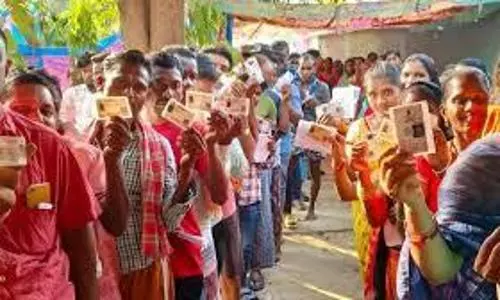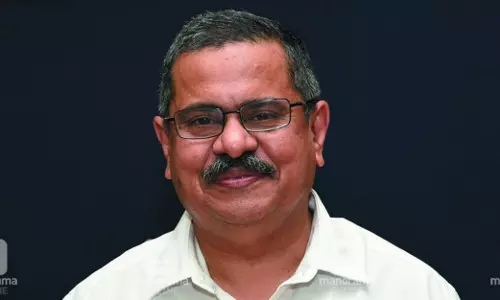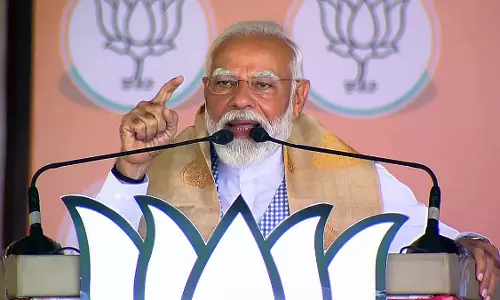
Quota Denial: Kerala model
text_fieldsThe concept of Kerala Administrative Service (KAS) akin to the Indian Administrative Service (IAS) model existing at the central level, should have got immense reception as a project to make available the best officials in the state’s service sector.
This is a process of directly appointing officials in top positions under the state government. Appointments through KAS will be carried out in the 29 most important departments in the secretariat such as administration and finance and other similar departments. Those who serve for a minimum of eight years in such cadres will be eligible for IAS cadre. Given that the number of people securing the IAS grade while serving in the post of Deputy Collector is less, there are several beneficial sides to this including finding more efficient officials. That was also the reason why the erstwhile UDF government decided to establish KAS. However, when the service organisations came out against it, the Oommen Chandy government had dropped that attempt. The Pinarayi Vijayan government that followed issued the directive regarding KAS in December last year without paying heed to the protests and pen-down strikes of the employees. Although that move was welcomed in general, many had then pointed out the anti-reservation aspects in that. Though even the Minority Commission and Legal Secretary shared these concerns, the government is set to issue the final notification without being willing for any amendment and retaining all the provisions that keep the backward class away from top positions. It is in this context that Madhyamam published an investigative series titled ‘KAS Undermining Reservation’ which exposes the move to inject anti-reservation ideas into a project which thereby would give away the posts to the complete dominance of the upper class, instead of invigorating, as it should have done, our seats of power.
Appointments to the KAS cadres – from which candidates will be chosen to function as department heads and district heads as in IAS, will be held in three streams. Out of this, except for the first stream, there will be no reservation in the other two streams. The official rationale that reservation was dropped as the second and third streams had no direct appointments - , has no legal or moral justification. The government is of the view that those who received the benefit of reservation while joining the service, need not be given reservation again. But all these justifications are raised when even in department level promotions, PSC itself has applied reservation. KAS being a new cadre of government service, naturally reservation is to be implemented there. But as of now, direct recruitment is made only for a third of posts in KAS. The remaining 67 per cent will be filled under 'By Transfer' category, and there is no reservation in this major chunk. In other words, if say 150 candidates are recruited through KAS, 75 posts have to be made via reservation, but as things stand now, only 25 applicants will get the benefit of quotas. If KAS is established with these rules, there is no doubt that backward communities will be kept away from key posts of the government.
The constitutional mechanism of reservation has been, albeit with limitations, able to bring the communities who were sidelined from society due to historical reasons, into the mainstream and into participation in power. For that very reason, if the current government has any sincere intention to ensure their legitimate share in government, it should have introduced job quotas in KAS. But one cannot help saying with regret that not only has it not done that, but it has even taken a reactionary stance of keeping them away from the corridors of power. Perhaps this may also have to be inferred as a genetic defect of the left government's reservation policies. It has on several occasions preferred to give weightage to a philosophy of economic reservation rather than community reservation. And Pinarayi's government itself has taken several decisions that amount to gradually phasing out community reservation. An example is the introduction of 10 per cent reservation for forward communities in recruitments to Devaswom Board. It may be noted that Devaswom Board is an organization with already a high representation of forward castes. It is by now a proven fact, through documents including the Narendran Commission Report, that reservation proportionate to population has not been implemented in bureaucracy. Statistics would also easily reinforce the fact that forward communities have a dominant representation even as it is in government service including top-level positions. Sadly enough, that dominance will only get strengthened through the reservation rules of KAS. The chief minister's response that if there is any loss of posts, special recruitment could be conducted, can only be dismissed as meaningless. If at all that is implemented, it will benefit only the scheduled caste/tribe segment. Other backward communities will still be excluded. Barring some representations made by Scheduled Caste & Tribe Welfare Board, and a few MLA's of Muslim League raising the subject in the assembly, the people of Kerala have not witnessed any stir paving way for a serious agitation. That apathy is perhaps what gave some confidence to Pinarayi government. It is another matter that without swallowing his own speeches and claims about renaissance of Kerala, he cannot proceed with KAS in its current form and structure.























